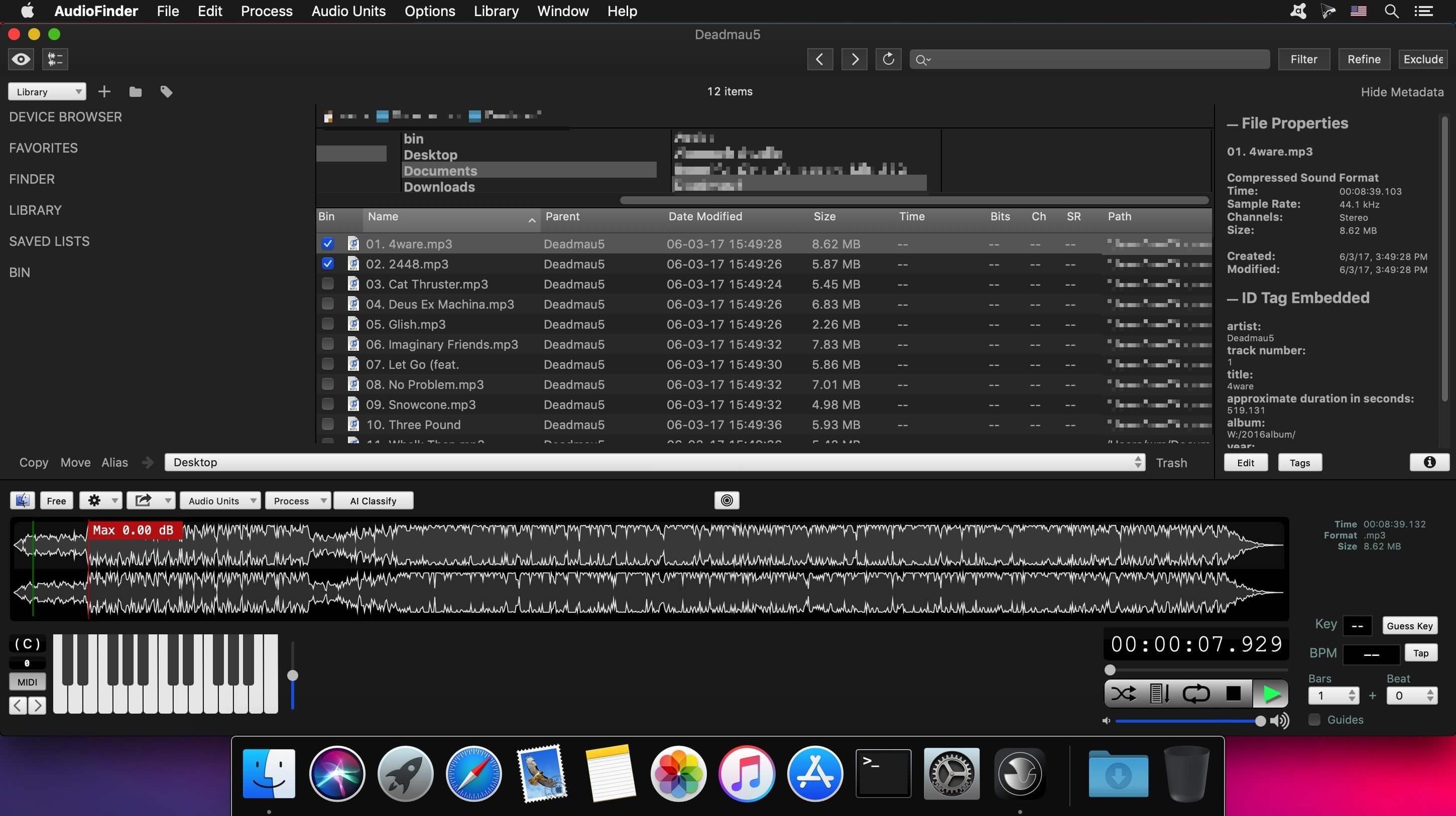

Not coincidentally I have recently read an interesting book by Gene Smith called Tagging: People Powered Metadata and the Social Web and it outlines three main motives for tagging:ģ. But if you’ve ever uploaded a video to youtube or vimeo, or uploaded photos on flickr you might also notice you are obliged to enter descriptive tags to specify the genre, style or topic. Every time you take a photo or record a sound, the device you use is generating metadata for you eg metadata fields such as creation date and the device name & model are embedded in every photo or sound. And thats where metadata can help!Ĭhances are you’re already generating metadata, either automatically or manually.
#ALTERNATIVE TO ICEDAUDIO AUDIOFINDER ARCHIVE#
But time passes, memories blurr and data soon becomes lost in the archive constantly growing in parallel to your life. All that data is getting stored and, in the present tense, we know what that data is and its relative importance. More than likely like me you are constantly generating new material – be it photos, sounds, video, music, text or whatever. But first lets get the definition under control: Metadata is data about other data – that’s where its value lies, but the metadata is only of value if you have a use for it, and the same could be said of the data itself. Data about data, that’s got to be pretty interesting right? Well, it turns out to be more interesting than you might think.


 0 kommentar(er)
0 kommentar(er)
